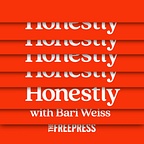Seventy-five years ago this week, the Jewish community of Palestine (known as the yishuv) gathered in the art museum of Tel Aviv—then a city of less than 200,000 inhabitants—in order to perform a resurrection. Thirty-seven people—36 men and one woman—were about to sign Israel’s Declaration of Independence, which would reestablish Jewish political sovere…
Continue Reading The Free Press
To support our journalism, and unlock all of our investigative stories and provocative commentary about the world as it actually is, subscribe below.
$8.33/month
Billed as $100 yearly
$10/month
Billed as $10 monthly
Already have an account?
Sign In
Make a comment
Share article



